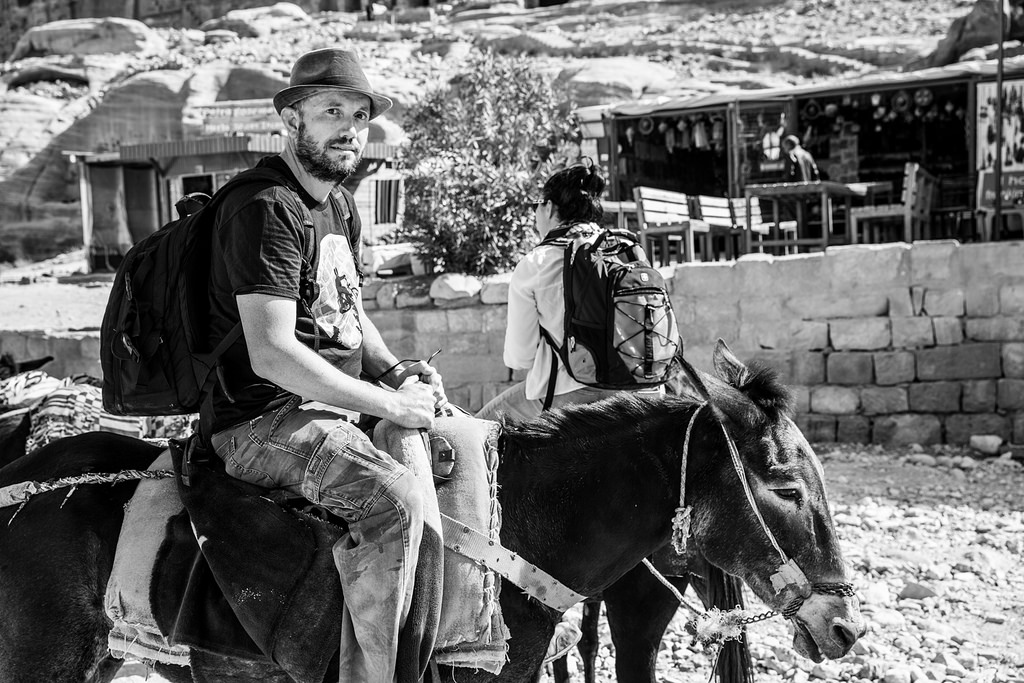In the trailer for his new book, A Call To Resurgence, Mark Driscoll is driving around in a hearse while talking about the ills of America’s culture and America’s Christianity.
“Christendom is dead,” he says at the beginning of the video. His tone is confident and certain, as if he’s the one who gets to make decisions like this or the one in charge of calling its time of death. And while the three-minute video is filled up with what Driscoll considers mostly bad news about Christianity, he’s not sad or depressed about all of the Bad News. That’s because Driscoll isn’t dumb. For one thing, he’s a marketing genius. And too, because he knows that nothing energizes an evangelical culture to do something–to act, to panic, to purchase a book by Mark Driscoll–like the fear that everything is falling apart.
That’s because among evangelicals, nothing wakes up religious people like Bad News. From national tragedies to statistics about “sins” and “faith’s decline,” from President Obama’s liberal policies to headlines involving Iran, Syria, and Israel, from anything remotely involving equality for gay people to statistics about abortion, nothing sells religion like bad news or news that evangelicals assume is bad news.
Why is this true? For many reasons.
But for starters, it’s in our spiritual blood. No less than thirty years after the Puritans arrived in Boston, their preachers started mourning the decline of their people’s piety. In the 1730s, Jonathan Edwards believed Christianity’s future was bleak because his town’s young people didn’t seem too thrilled about following Jesus. In the 1880s, D.L. Moody and other evangelists sermonized sharp warnings about the decline of faith in America. In the early 1900s, Billy Sunday screamed and yelled his laments about the condition of America’s religion. In the 1940s, the National Association of Evangelicals was formed… why? Because many of America’s Christians believed we were losing our religion and that mainline denominations were becoming laced with liberalism and progressive theologies. And in 1976, Jerry Falwell began crisscrossing the country preaching the Bad News of America’s lack of Jesus Christ. What was Jerry’s chief crisis? Humanism. Humanism was roaming around America like a lion, seeking to devour the faith and freedoms of everyday Americans. Nothing about Driscoll’s message is new. It’s an idea that is rooted in America’s faith: When America’s saints are bored, scare them, remind them of their enemy, and give them busywork.
But that’s not the only reason.
Evangelicalism’s and Fundamentalism’s lifeblood is most often not found in Jesus Christ but rather they survive on the tension that is created when religion and biblical morality are juxtaposed against whatever is happening in culture. Tension sells religiosity in America. Our messages become some version of… America is going to Hell in a hand basket or Christianity is on life support or is on the verge of dying or look at the mess we’ve made (and I know how to fix it!). That’s been true since the 1920s when America’s faithful began fighting the war against evolution. In the 1930s, fundamentalism surged because of socialism and the growing fears that many of America’s mainline denominations were becoming liberal. In the 1960s, fundamentalism surged because of the sexual revolution, the Vietnam War, etc. Without tension… without a fight… American Fundamentalism (in it’s various forms) always begins to die.
American Fundamentalism/Evangelicalism believes with The End in mind. Regardless of their eschatology, most of America’s faithful evangelicals believe that The End is near or coming. Bad News only instigates this belief. Dispensationalists are especially prone to this doom and gloom outlook. Since its development in the 1800s, the doctrines of Dispensationalism have been tied with eager anticipation to the awful events happening around them. While many Christians believe that the Book of Revelation is allegorical in nature, the more common belief is that it’s a literal foretelling of what will come. But what’s strange is that, those who adhere to a literal understanding of Revelation, embrace an eschatology that is very allegorical in nature, religious ideas that seem to transcend time and be easily applied to whatever headline are making news on any given day. In the 1930s and 1940s, America’s prophets believed the Nazis were bringing to End. In the 1960s-1980s, they foretold that the Communists were bringing about the End. And today all of the same verses suggest that the Muslims are bringing about the End. However, one thing that was always true about the prophets’ words: they always created fear, anxiety, panic, converts, and some sort of “call to action.”
But maybe our love of Bad News makes sense, since every good story’s most important character is The Villain. Which is why so many evangelicals uplift gloom, evil, and their cultural lamentations—because without the Bad News, the Good News just doesn’t seem to mean as much. Because they’re understanding of the Good News is far too often dependent on Bad News.
And that scenario plays out at the end of Driscoll’s book trailer. After two-and-half minutes of mourning the death of Christianity, Driscoll shares with us the location to which he’s driving.
He says, “We’re on our way to a church that was part of Christendom’s civil religion. It was all about good works and not very much about good news. That church died…”
That’s the bad news, information presented only to enhance what has happened happened in that old church building after it was purchased by Mars Hill.
“What I want you to see tonight is what happens after the funeral,” he says, “there is in fact a future… people who were not worshiping Jesus, tons of young people are meeting him.”
Driscoll’s hearse pulls up to the front of the once dead church.
He tells us that one of the points of his book is to show us “the state of culture, the state of the church, and the urgent sense of need…”
And his hope is that all of this bad news will ignite in us “some vision of what [our] contribution” so that Christianity would have a future, and not just a funeral.
To the sound of wailing guitars, pounding drums, and the loud applause of young followers, Driscoll enters the church like a rockstar. Upon taking the stage, he shouts, “Take your seats. Grab your Bibles. Who are we going to learn about?”
The audience shouts: “JESUS!”
And boom! There’s the Good News, a fews seconds of content at the end of the video built on minutes of Driscoll telling us Bad News and us seeing flashes of Bad News. Would the shouting of Jesus’s name have been nearly as potent and emotionally satisfying had Driscoll not shared the Bad News? Nope.
The Bad News offered context. Heck it offered two-and-a-half minutes of context—black-and-white context—context that was delivered while driving in a hearse. The Bad News set the foundation. And it will likely be the Bad News that sells the book.
Because among so many of America’s Christians, the Bad News sells. As it relates to the Good News, many of us think of it the same way we think of the color black in an image or a painting. Without it, the Good News is flat and unimpressive.
The last words we see are these: Will Christianity have a future or a funeral?
Then, these words appear: The question is ours. The answer is yours.
Which is one more reason Bad News sells: Because far too often it all comes back to us. Our faith in Jesus is seemingly quite shallow. Because Jesus has no say in what will or won’t happen to Christianity in America. It’s up to us to create the future of faith.
And that just seems like more Bad News…
Viagra is for the treatment of inability to get or keep an erection and similar states when hard-on is of low quality. When you buy remedies like cialis from canada you should know about cialis online canada. It may have a lot of brands, but only one ATC Code. Erectile malfunction, defined as the persistent impossibility to maintain a satisfactory erection, affects an estimated 15 to 30 millions men in the America alone. Sexual health is an substantial part of a man’s life, no problem his age etc.





It seems to me that we move from one manufactured crisis to another, and the consequence is that each successive time, you have to be more extreme to get peoples’ attention, which is clearly counterproductive. The more extreme the loudest people in our tribe become, the more they alienate the same people they claim they’re trying to reach. I think it even burns some people inside the tribe out as well (as evidenced by so many stories shared by people in this forum about harrowing experiences with crazy church people). I think it is very insightful of you to recognize what this is at it’s core: marketing. If you’re running a multi-million dollar empire and you start experiencing attrition, what’s the natural response? FIRE UP THE MESSAGING MACHINE AND GET PEOPLES’ ATTENTION! What a silly game this is, and a far cry from a simple and nuanced faith with Jesus.
Really, Christianity is in danger of dying?!! That’s crazy talk. I think Mark D has deified himself.
“The last words we see are these: Will Christianity have a future or a funeral?
Then, these words appear: The question is ours. The answer is yours.
Which is one more reason Bad News sells: Because far too often it all comes back to us.
Awesome! You caught Mark Driscoll being anthropocentric!
My only question would be that it seemed like Jesus used this same message in the first couple chapters of Revelation when he announced to different churches that they were heading in a very bad direction and they would die if they didn’t come to grips with that, repent, and change. How is Driscoll’s message any different? Especially since he said “Christendom” is dead, not the church. The two are most certainly not synonymous. Just my two cents.
Sadly too, Jesus was not at all interested in “christianity “…that’s something we made him. But yes, Jesus was consumed with faith. His profound redemptive imagination constantly pained a new landscape of reality. But the faith more than anything, rather than endorsing a “certain” tribe…it was a faith that was profoundly human. It was a faith that embraced human solidarity. If we hope to have any kind of future…it must be a faith that is profoundly human.